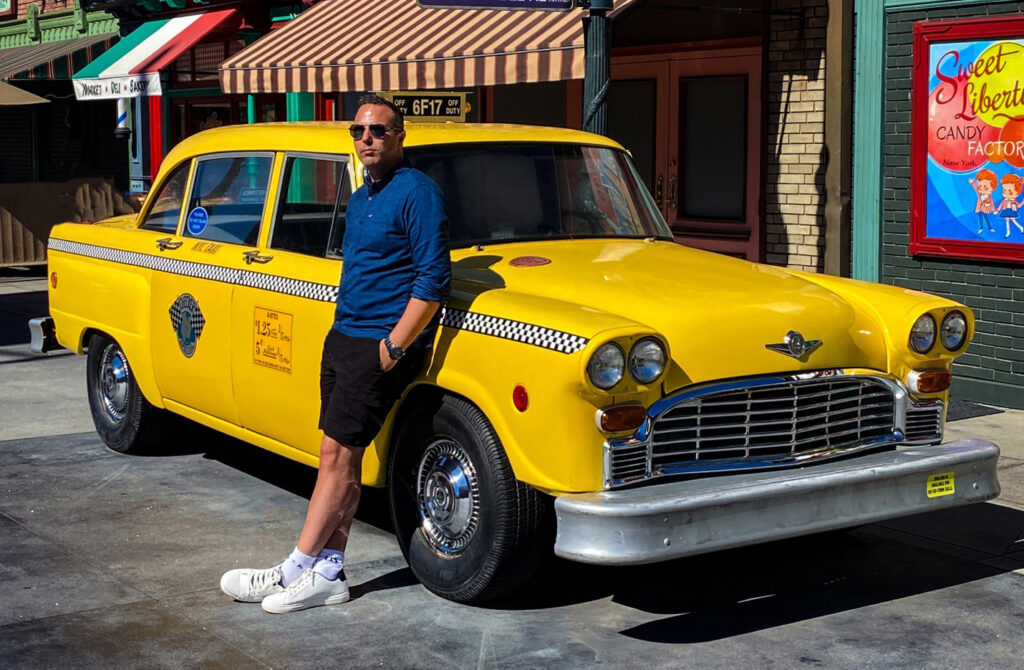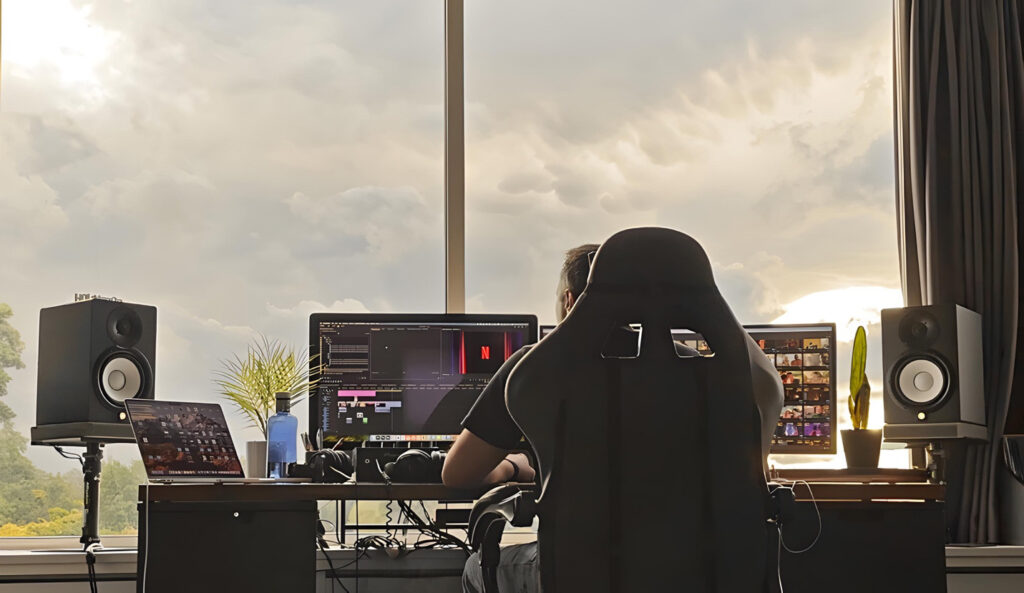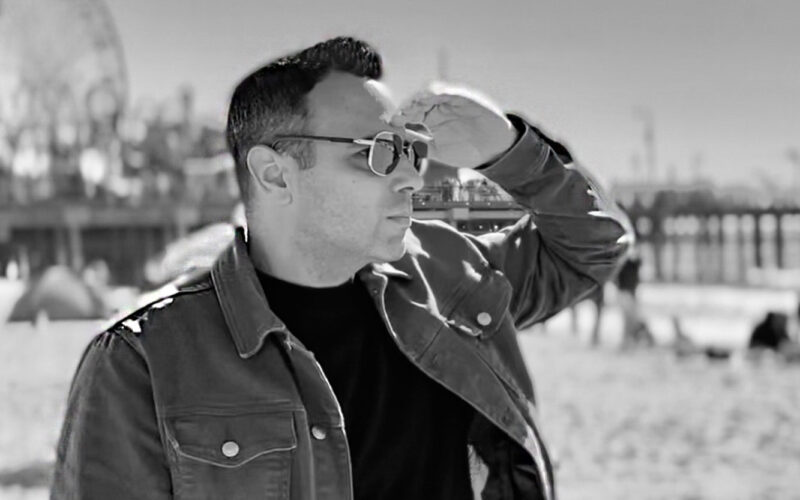They are what captivate us and help us decide whether we want to watch a film or show, whether it’s on TV, in theaters, or through streaming services, movie trailers master the power of visual storytelling, a craft accomplished by only a handful of experts within the entertainment industry.
Alessandro Innocenti is an award-winning video creative in the industry who specializes in making trailers. He will walk us throught the process of crafting these short visual epics. We all likely encountered some of Alessandro’s work across various platforms. He’s one of the talents behind Netflix trailers. Some of his creations include trailers for popular hits such as “The Witcher” and “Sex Education”.
What sets trailer editors apart from other film editors?
I’d say the most significant distinction lies in the numerous roles we assume, all condensed into one role. We’re not only responsible for the edit itself; we essentially take on the roles of a producer, writer, director, and music composer. Having an intimate understanding of the emotional power and structure of music and sound design, blending it with the visuals.
After all, we’re creating a new film or series experience. For instance, we aim to condense a 2- hour story into just 2 minutes. In a way, we take on the “director’s chair” during the process to encapsulate a story into a brief video piece. And on top of that, we’re also tasked with “selling” the title, so add marketing to our list of roles.
The outcome is essentially an advertising, but it seamlessly weaves together cohesive storytelling and captivating elements, like intertwining music with dialogues and sound effects in a stylish artistic manner. Not revealing too much of the story, avoiding addressing questions like “what,” “how,” and “why.” This approach keeps viewers intrigued, wanting a desire for further answers. Hence, a trailer editor requires some unique set of creative skills. Trailer editing is often called “the invisible art”.
Could you describe your trailer creation process?
First, I receive the script and/or a brief, depending on the studio, with a full detailed description about the title, sometimes briefs have a clear vision of what is wanted exactly, but not always. There are usually several meetings with production and marketing to discuss ideas, approach, and logistics.
The next process varies depending on the editor’s preferences. Personally, I like to handle most stages as much as possible, including the logging stage. Logging involves watching the entire content and selecting the shots suitable for the trailer. This grants me more control and insight into the shots needed. During this process I may request unused footage or ADRs (dialogue replacement) from actors.
Once I’ve organized all the shots and set up a timeline for the story, I start looking for music—a stage I particularly enjoy. Music is, in my opinion, one of the most vital elements of a trailer. It’s crucial to find the right song; a single wrong choice can compromise the entire campaign around a title. This stage can also be time-intensive. Sometimes I spend a week searching for the perfect song, while other times it takes just a couple of hours. The complexity of the structure often dictates the time spent. Occasionally, the trailer requires more than one song, and I might need to “re-work” it to match the edit seamlessly—a process we call “trailerization.” This is quite common with covers of popular songs, for instance.
Once the edit is complete, I start adding sound effects—a stage referred to as sound design. This is usually the final process. Once approved, the trailer goes for finishing, which includes sound mixing, graphics, color grading, and other adjustments to polish it.

Can you elaborate more on the concept of “trailerization” of a song and why it’s done?
Trailer editors typically choose the music, but there are times when we receive special requests from studios or marketing to use a specific song. This can happen for a couple of reasons: a deal with a label/artist to feature their song in the trailer before its public release, promoting the song, or at times, studios or showrunners request a specific song for preferential reasons. If the chosen music works, I don’t question it. However, if it doesn’t align with the edit, I either suggest an alternative or proceed with trailerizing it.
This process involves reworking an existing song to maximize its impact in trailers. For example: using overlays where new elements are added to a song, this might include drums, hits, strings, or special effects like risers, basically a remix. Let’s say, an original song features only a piano and vocals, we might add powerful drums and hits to match the edit’s pace, preventing it from feeling flat and lifeless. To illustrate, I created a trailer for a Netflix’s adaptation of Harlan Coben’s ‘Stay Close,’ using a cover of Blondie’s “One Way or Another.” The cover had minimal elements— just a voice, a piano, and subtle drums. Through trailerization, both the song and the visuals gained a more impactful presentation. This process involves collaboration with music libraries and composers.
What are some of the challenges you face when creating a trailer?
Music clearance. There are times when I’m keen on using a specific song for a trailer, but the cost can be astronomical, causing our music managers to simply veto the idea. This means I must let go of using those tracks. Then there are moments when the labels or artists themselves don’t give their approval for their songs to be used in trailers. I think this often stems from personal preferences. Some artists are more protective of their creations than others, which I completely get. After all, no artist wants their work to be associated with something they’re not comfortable with.
And what do you love about it?
Working with super talented people. This role involves teamwork among designers, copywriters, sound mixers, filmmakers, producers, composers, and more. I’ve observed a significant number of individuals receiving less recognition in this field. These are the professionals operating behind the scenes, steering movies toward success. Without them, many films would remain unnoticed. The creation of trailers relies on the contribution of various artists in the industry, as exemplified by the collaborations I’ve mentioned. This collaborative effort is what aids in achieving the success of a trailer, and I find immense satisfaction in this synergy. It offers me the opportunity to witness firsthand the exceptional talents these individuals possess, and that brings me great joy.

Do you have a preferred genre that you enjoy working on?
I enjoy working on almost everything, but I particularly love making trailers for horrors. This might sound ironic, but despite not being a huge fan of horror movies myself, I like making trailers for this genre. Working on horror trailers allows me to explore new creative avenues and experiment with rhythmic editing techniques, which I find it satisfying. Finding that delicate equilibrium between showing just enough to grip the audience’s curiosity and holding back to keep them intrigued is especially challenging in the horror genre, and I’m drawn to that challenge.
On the flip side, working on comedies is equally exciting. In fact, it’s one of the most demanding genres to tackle when it comes to trailer editing. Making people laugh through a trailer is no easy feat. It demands not only a knack for perfect timing but also the skill to evoke authentic laughter from the viewers. If the editing isn’t done just right, even the most hilarious scene can fall flat. For example, nailing the exact moment to cut the music to deliver a punchline becomes pivotal in making sure that comedic moment lands naturally.
Any advice for aspiring trailer editors?
Start small and take gradual steps. Watch numerous trailers, and when a new one comes out, watch it several times from different perspectives. Pay close attention to the music cues, stop- downs, sound effects, and other elements.
Next, try creating a fan trailer for your favorite movie or show. Make it from your own viewpoint, then compare it to released trailers to identify areas for improvement. Keep practicing and refining your skills. If you really want to become a trailer editor, you’ll become one.









